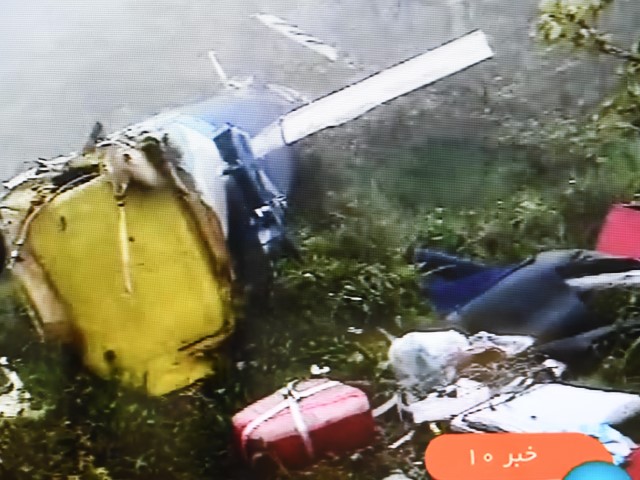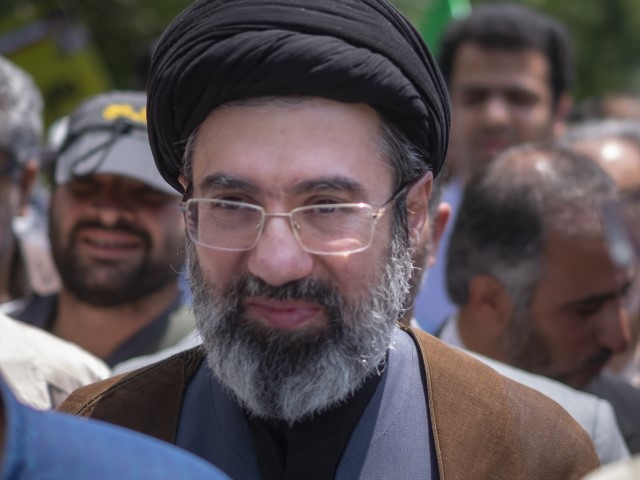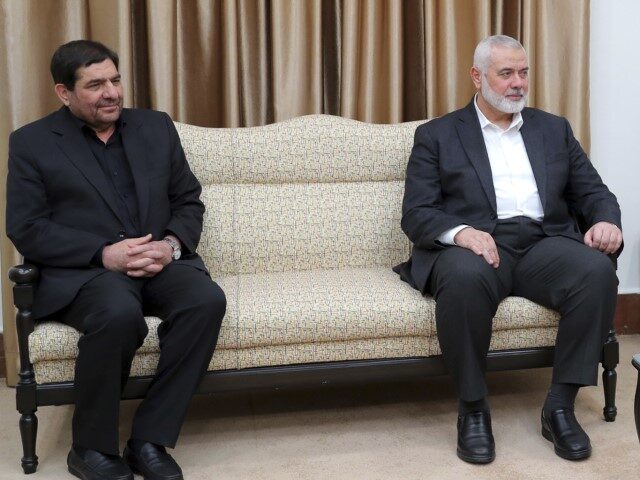Interim President Mohammad Mokhber held a phone conversation on Sunday with the head of the terrorist organization Palestinian Islamic Jihad (PIJ) to assure his organization that Tehran would continue to sponsor terrorists following the sudden loss of late President Ebrahim Raisi.
“The basic strategy of the Islamic Republic of Iran in backing the Resistance Front, especially the Palestinian resistance groups, will not alter by the change of people,” Mokhber reportedly assured Ziad al-Nakhalah, the PIJ “secretary general.”
Mokhber became interim president following the death of Raisi, Foreign Minister Hossein Amir-Abdollahian, and six others in a helicopter crash on May 19. The group was returning from a political engagement in Azerbaijan when the helicopter suddenly lost contact with the ground. Iranian officials initially reported that the helicopter had a “hard landing” that had “not been rough” before confirming on May 20 that the helicopter had crashed and killed everyone on board.
The Iranian Islamist regime has not offered any clarity to the public regarding the nature of the crash. A preliminary report by the Iranian Armed Forces published on Thursday stated that investigators had found no evidence of sabotage, such as bullet holes or explosive residue, but did not suggest any alternate explanation for the crash.

Photo taken on May 20, 2024, shows the wreckage of the crashed helicopter near Varzaqan County, some 670 km away from Tehran, Iran, on the footage of Iran’s state-run IRIB TV. Iranian President Ebrahim Raisi and some members of his accompanying team, including Foreign Minister Hossein Amir-Abdollahian, were confirmed dead Monday morning as the wreckage of the helicopter carrying them was found following its crash in bad weather on Sunday near Varzaqan County. (Shadati/Xinhua via Getty)
Mokhber will remain president through June 28, when “supreme leader” Ayatollah Ali Khamenei will hold a rigged election to choose Raisi’s true successor. Mokhber has not commented on whether he will attempt to appear on the ballot or not at press time.
The Iranian state media outlet PressTV reported on Sunday that Mokhber made time for a conversation with the leadership of PIJ to ensure that Iran would remain the world’s premier state sponsor of terrorism despite Raisi’s death. Raisi, commonly known as the “butcher of Tehran,” made a career as a ruthless prosecutor ensuring the deaths of thousands of political dissidents and as an enthusiastic supporter of the global jihadist cause.
“He [Mokhber] said that President Raeisi and Foreign Minister Hossein Amir-Abdollahian, who lost their lives in a helicopter crash last week, were seriously concerned about support for the resistance,” PressTV reported. The “resistance” is Iran’s catch-all term for the large number of radical Islamist terrorist organizations it funds in the Middle East, including PIJ, Hamas, the Yemeni Houthi organization, Lebanese Hezbollah, and others.
Mokhber appears to be prioritizing introducing himself to the leaders of various allies of Tehran as the first step to maintaining the presidency. On Saturday, the interim leader met with Iraqi President Abdul Latif Rashid, who was in the Iranian capital for bilateral talks.
Just as with the PIJ leader, Mokhber reportedly told Rashid that Tehran would not change its policy “towards the government and people of Iraq, which was pursued by the late President Raisi.”
In Iraq, Iran has for a long time backed formerly paramilitary groups known as the “Popular Mobilization Forces” (PMF), a coalition of mostly Shiite groups that fought against the Sunni Islamic State “caliphate.” Following the fall of the “caliphate,” Iraq legally integrated the PMF into the nation’s armed forces, but still struggles to control them. A defecting wing of PMF units is believed to be behind the “Islamic Resistance in Iraq,” a vague term used of Iran-affiliated jihadists who have been attempting to attack Israel since the gruesome Hamas attack on the country on October 7.
Mokhber’s meetings and calls followed a massive meeting featuring representatives of at least six Iran-affiliated terrorist organizations last week. The terrorists were reportedly all in Tehran for Raisi’s funeral and took the opportunity to attend a meeting with the head of the Islamic Revolutionary Guard Corps (IRGC) and its Quds Force, which specializes in foreign terrorist operations. Hamas – whose “political” chief Ismail Haniyeh was allowed to speak at one of several funeral events for Raisi – was represented at the meeting, as well as PIJ, Hezbollah, the Houthis, the Iraqi “resistance” groups, and the “Popular Front for the Liberation of Palestine.”
“The attendees at the meeting emphasized the need for the continuation of the fight and struggle until the Palestinian resistance’s complete and ultimate victory in the Gaza Strip with the participation of all resistance groups and fronts across the region,” the IRGC-affiliated Tasnim News Agency reported on the meeting.
The Saudi news agency Al-Arabiya translated reports on the meeting as including a commitment from the group to ensure a “continuation of jihad” against Israel.
Mokhber came to power after a career specializing in running the finances of various trusts associated with Khamenei, the most recent of which he was in charge of being the EIKO (the “Execution of Imam Khomeini’s Order”), also known as Setad. As first vice president, appointed by Raisi, he was first in the line of succession when Raisi died on Sunday. Mokhber has not maintained a particularly active public persona or prominently clashed with any high-profile figures in the regime, nor has he elicited any particular praise.
Raisi’s abrupt death leaves unclear the succession for both the presidency and the position of “supreme leader.” Many Iran regime observers believed that Khamenei, an octogenarian with suspected health problems, had begun preparing Raisi to succeed him. Following his death, speculation has landed on Khamenei’s son, Mojtaba, as a potential new “supreme leader” – or presidential candidate.

The son of Iran’s Supreme Leader Ayatollah Ali Khamenei, Mojtaba Khamenei, attends a demonstration to mark Jerusalem day in Tehran May 31, 2019. (Morteza Nikoubazl/NurPhoto via Getty)
Follow Frances Martel on Facebook and Twitter.

COMMENTS
Please let us know if you're having issues with commenting.